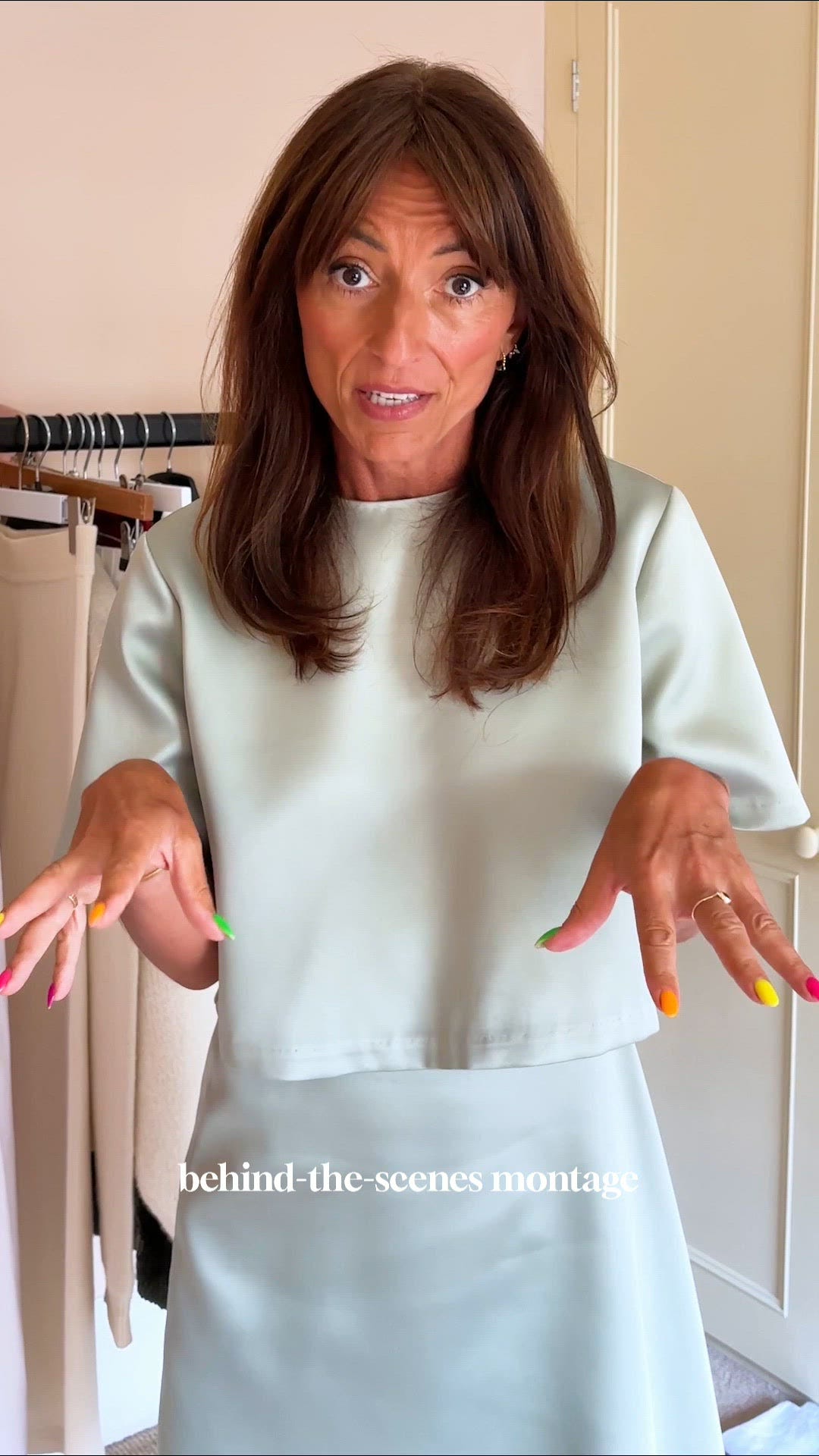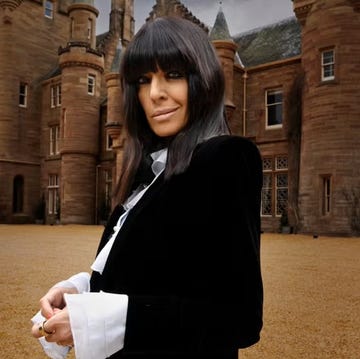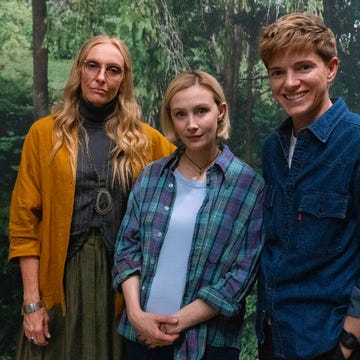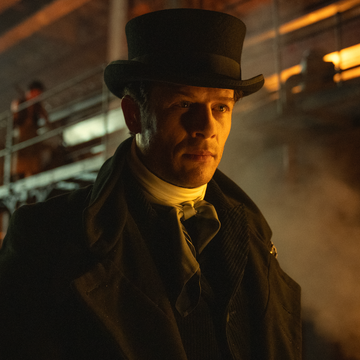It is a giddy thrill to be allowed to ask a psychotherapist about themselves, and when that therapist is Philippa Perry, the thrill is all the greater. When you’re sitting in her kitchen, surrounded by the smell of fresh coffee, the neons of her huge wall art and the pitter patter of Kevin, the cat she shares with husband Grayson Perry, the thrill is greater still. As I’m ushered to a seat and offered a coffee, I’m instantly relaxed in the homely chaos and her calm company. Even in the cosiness of her domestic environment, Philippa Perry is very much the person we know from her media work – bright glasses, bold geometric clothes and an attentive smile.
I begin by asking how she came to her work as a psychotherapist – was she drawn to it, having been a patient, or simply curious? “I don’t think people are attracted to therapy training because everything’s going great,” she explains. “I actually think most are wounded healers – hopefully, they now know how to work on their own wounds and that has given them so much that they want to work on others.”
So, was she a wounded healer? She tells me about her experience in the 1980s, volunteering for the Samaritans. “I thought I was training to help people – really believed that was the reason I did it! But there was an unconscious reason that I was there: I wanted to find out whether it was safe to talk about feelings. Because back then, I was still too scared to look at my own feelings.”
What to read next
The idea of Philippa being too scared to look at feelings seems extraordinary, but she convinces me that learning to listen taught her so much. “I found out through listening to people that not only was discussing feelings safe, but that it really seemed to help. Quite a revelation! Every week in Samaritans training, they’d give us a new scenario and I’d go, ‘Wow, I have no idea what I’d do.’” Apparently, it turned out that this was the right answer anyway: “That was the training all along – finding people who weren’t too directive.”
Philippa admits even she wouldn’t call herself particularly self-aware. “It’s something we are all continually developing,” she explains. “Until you know what you’re doing or what your pattern is, in any given situation you have no choice about whether to keep it or change it. We often try to start with ‘why’, but it’s ‘how’ we do things that is the place to start. Once we know how we habitually behave, we can steer – and that’s exciting.”
She makes navigating all these things sound so simple, even convincing me that there are cases of infidelity in marriages that can be overcome: “If you’re conflict-avoidant, that means you can’t speak every thought you need to. So part of you will get lonely, and the part of you that gets lonely will want to search for someone else. You might not know what you’re doing, but you’re walking around with a sign on your face saying ‘vacancy for a bit of a lover here’. Then there’s contact-through-conflict: you might get into a bit of tit-for-tat. You looked at her, so I slept with him, and so on. These can be unpacked and survived. Quite often, people want to get found out – you leave the receipts in your jacket because you were lonely, and you want that to be addressed.”
People have long been intrigued by the dynamics of her relationship with her husband, Turner Prize-winning artist and cross-dressing national treasure Grayson Perry. How would she respond if they hit a bump in the road for whatever reason? “It’s not going to happen. Not to him, not to me. We’ve been together since 1987 and boundaries were laid down quite early on.”
Her confidence in her relationship is so striking it’s impossible not to wonder if this is because it is true love or because she is a psychotherapist. Does Grayson notice when she’s operating in ‘work mode’ or can she always get away with it? “Well, I don’t always do it,” she says with a smile in the corner of her mouth. “Sometimes I just feel like being right. But it’s never a good idea when I am, at any cost.” Now I’m the one smiling. So she has learned to pick her moments?
“Yes, I think so,” she says. “We’re so good at arguing – I don’t even think we get to something you might call conflict. Because we both do it, we both validate each other’s point of view.”
The couple met at a creative-writing class in 1987, at a time at which she has previously admitted she was ‘on the hunt’ for a baby father. Philippa tells me now she was “deep in reading about psychology” when they met. “I had realised that my pattern with early boyfriends tended to repeat and I could have said, ‘All men are the same,’ or I could have said, ‘I’m the same; I keep doing this and getting that reaction,’ so I thought, ‘Okay, I am going to do something different,’” she explains.
Clearly, it worked, as they have a daughter, Flo, a writer and illustrator, who was born five years later. Philippa’s self-assurance about coping with life’s emotional challenges is almost intoxicating. As I sit there, I feel she could persuade me I was capable of anything. She spells out very clearly in the book that we need to let go of the passive Hollywood idea that romance ‘happens’ to us, and that we need to do more than merely wait for ‘Cupid’s arrow’.
Her advice on dating, particularly the agony of pitching oneself on dating apps? “Put as many people off as possible; it is so much better than being who you think you ought to be – then they’re attracted to you, rather than something you might not be able to keep up.” She is also inspiring about dating itself, reminding me that part of it is trusting people: “I don’t mean trusting a stranger with your bank details, but with your uncertainty. Maybe you’re not sure about things. But maybe that’s okay?”
Is this what it’s like for her friends? Is life as Philippa Perry a constant flurry of ‘Can I just quickly ask…?’ She swears not, saying she’s “not the sage with my friends. I think they know better.” Having read Philippa’s book, The Book You Want Everyone You Love* To Read, about all types of relationships, it’s her chapters on which affect me the most. She has a strong sense of boundaries and is sanguine about how natural it is for us to drift in and out of friendships in a benign way, feeling that some are simply unsustainable beyond a certain period in our lives.
“I think, ‘Chuck a friend’ – why not?” she says with a flourish. But we don’t have the language to do it, I protest. “You don’t have such a bond with a friend anyway,” she explains. “If you suddenly stopped seeing a lover, that’s quite shocking. But with a friend there are so many reasons for drifting apart.”
I agree with her, but I can’t deny that it seems to go against so much of what I read in my 20s and 30s, about how friendship was the true bond we should all be seeking, that friends would be there for us when romance lets us down. Philippa doesn’t seem convinced, reminding me how clear the book is that we don’t have power over other people anyway.
“We do have power over our children, but not other people. And realising that is a great freedom,” she says. “Most of the letters I get are, ‘How can I get my brother to do X, Y or Z?’ but in most cases, it’s not going to happen. I always say that you can change your own behaviour, you can’t change their behaviour. But there is a slim chance they might change their behaviour in relation to yours.”
I used to think there was a ‘right’ answer when I went to therapy, I tell her. “Oh, I would have crushed that down in the first session,” she says with the biggest laugh. And I don’t doubt it for a second. After all, we are all works in progress.
The Book You Want Everyone You Love* To Read: *And Maybe A Few You Don’t (Cornerstone Press) is out now.













